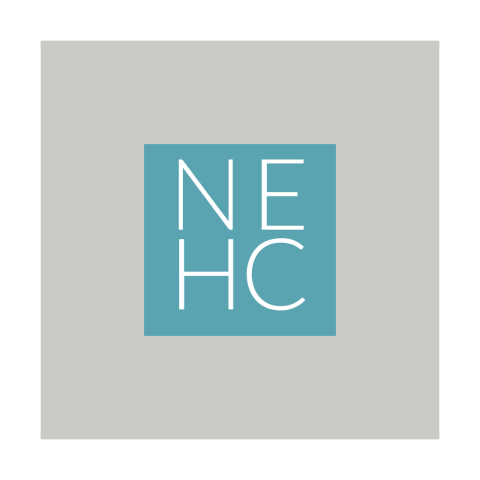Schedule and Presenters
(All events take place at the Sheraton Harborside Hotel in Portsmouth unless otherwise noted)
Monday, June 6
MORNING
7:30–9:00
Breakfast
Warner Room
8:30–9:00
Registration
Main Lobby
9:00–9:45
Welcome and Introductions
Prescott Room
9:45–10:00
Break
PRESENTATION
10:00–11:30
KEYNOTE: "Valuing and Evaluating Public Humanities:
A Framework for Promoting Community-Engaged Partnerships"
Roopika Risam
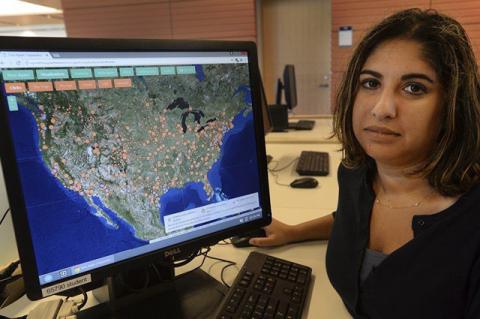
Roopika Risam is Chair of Secondary and Higher Education and Associate Professor of Education and English at Salem State University. As of July 2022, she will be Associate Professor of Film and Media Studies and Comparative Literature and Faculty of Digital Humanities and Social Engagement at Dartmouth College. She is a founding member of the Massachusetts Equity and Engagement Consortium and Principal Investigator of the Digital Ethnic Futures Consortium. Risam is also author of New Digital Worlds: Postcolonial Digital Humanities in Theory, Praxis, and Pedagogy, and co-editor of The Digital Black Atlantic, among other volumes. For more information, please visit http://roopikarisam.com.
11:30–12:00
Meet Your Workstreams
12:00–1:00
Lunch
Warner Room
AFTERNOON (Prescott Room)
1:00–1:30
Faculty and Graduate Students Reconvene in Workstreams
Undergrads with Avary
1:30–2:45
Workstream Exercise: "Urgent Issues for the Humanities"
2:45–3:00
Break
Presentation
3:00–4:00
Jodi Skipper on "Behind the Big House"
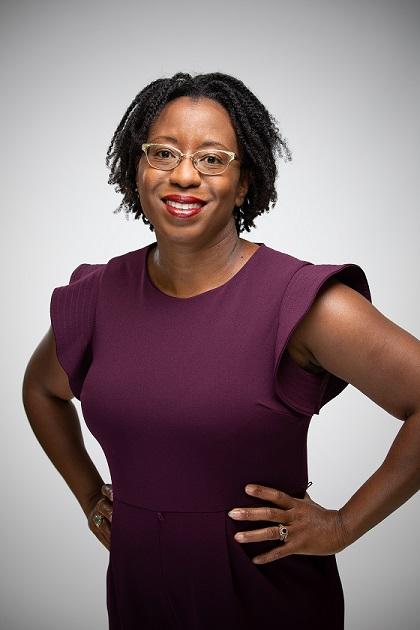
Jodi Skipper is an Associate Professor of Anthropology and Southern Studies at the University of Mississippi. Her research seeks to understand how historic preservation projects might play a role in imagining more sustainable and healthy futures for U.S. southern communities. During her time at the University of Mississippi, she has worked with Behind the Big House, a slave dwelling interpretation program in Mississippi, which expanded to the state of Arkansas. In 2017, Skipper was awarded one of eight Whiting Foundation Public Humanities fellowships to help expand the program model. With that fellowship, she created behindthebighouse.org, a website designed to help make the program model more accessible to individuals and institutions thinking through how they might incorporate slavery into historic site narratives. Skipper has also received a 2020 Mississippi Institutions for Higher Learning Excellence in Diversity and Inclusion Award and a University of Mississippi Diversity Innovator Award. She co-edited (with Michele Coffey) the book Navigating Souths: Transdisciplinary Explorations of a US Region (2017) and recently published an autoethnography, Behind the Big House: Reconciling, Slavery, Race and Heritage in the U.S. South with the University of Iowa Press’s Humanities and Public Life Series.
Tuesday, June 7
MORNING
7:30–9:00
Breakfast
Warner Room
9:00–9:30
Opening Announcements and Reflections
Prescott Room
PRESENTATION
9:30–10:30
Katie Trostel and Karen Long on "Rust Belt Through the Core"

Katie Trostel received her PhD in literature from the University of California, Santa Cruz. She is a teacher-scholar dedicated to building Ursuline College's capacity in the public humanities and its connection to the Rust Belt region since 2018. Additionally, she is an active member of the multi-campus Anisfield-Wolf Faculty Group housed at Case Western Reserve University and committed to teaching and learning through the award-winning canon. Grant experience includes serving as the PI for the Council of Independent College’s Legacies of American Slavery initiative from summer 2020-2024; serving as the Project Director for the National Endowment for the Humanities “Humanities Connection Planning Grant,” "Cleveland Divided: Rust Belt Revival" from Spring 2019-Spring 2020; and securing The Modern Language Association’s Humanities Innovation Course Development Grant for the project “From Rustbelt to Revival: Exploring the Legacy of Segregation, Inequality, and Social Justice in Cleveland through the Lens of the Anisfield-Wolf Canon” from 2018-2019. You can read more about her public-facing work here: “Cleveland Divided: Rust Belt Revival” and “Discovering ‘Reading-in-Place’ — the Act of Joining Stories and Geography.”
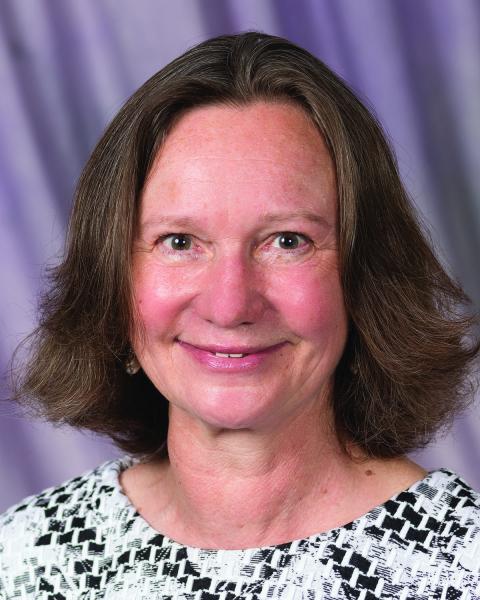
Karen R. Long manages the Anisfield-Wolf Book Awards, the only juried prize given each year for the best books to confront racism and contribute to our understanding of rich human cultures. She supports the jury deliberations, the celebration of the winners and works to bring the Anisfield-Wolf canon –stretching back to 1935 –into the lives of more readers each year. She collaborates with academics, activists and artists.Karen came to the Cleveland Foundation in 2013 after eight years as book editor of the Cleveland Plain Dealer. She continues as a literary critic, writing for Newsday, Kirkus and the Los Angeles Times. In 2016, she finished a seven-year stretch as a vice president for the National Book Critics Circle, where she was a judge for its six annual prizes, awarded each spring in New York City.In addition, Karen served the newspaper as a science writer, investigative reporter and a religion and ethics writer, and served her co-workers as a vice president of Local One of the Newspaper Guild.She won a Penny Missouri award for bestmagazine feature and an Associated Press award for best feature writing. A voracious reader since she wore her cat-eyed glasses to kindergarten in Seattle, Karen was educated at the University of Washington and Oxford University in England. She raised three children with her husband Joe Frolik. In 2015, Cleveland Magazine named her one of the most interesting people in the city.
10:30–10:45
Break
10:45–12:00
Digital Tours
Undergraduate Breakout Session with Avary Thorne
Warner Room
12:00–1:00
Lunch
Warner Room
AFTERNOON (Prescott Room)
PRESENTATION
1:00–2:00
David Trowbridge on CLIO and Virtual Museum Tours
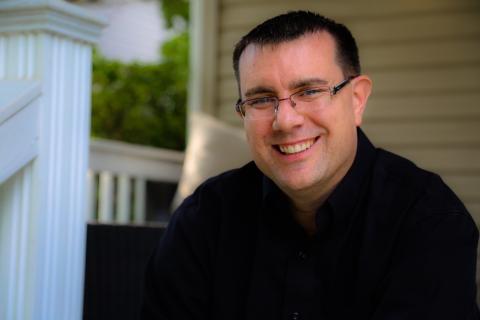
Dr. David Trowbridge (Ph.D. Kansas, 2008) is the William T. Kemper Associate Research Professor of Digital and Public Humanities at the University of Missouri-Kansas City. As part of his research and teaching, Trowbridge uses technology to connect people to history. Trowbridge is the author of A History of the United States, a textbook published under a Creative Commons license and available to students and the public in various formats. In 2013, Trowbridge began work on Clio, a website and mobile application that connects people to nearby history and culture, as a professor at Marshall University. Clio is free for everyone and has grown to over 35,000 articles for individual landmarks and over twelve hundred walking tours and virtual tours of museums and historic sites.
2:00–2:30
Group Exercise/Reflections
2:30–3:00
Walk to Prescott Park
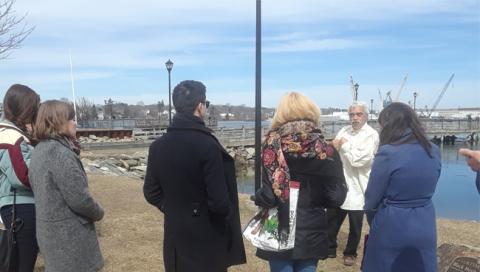
3:00–4:30
Black Heritage Trail of New Hampshire
Sankofa Guided Walking Tour of Portsmouth
Wednesday, June 8
MORNING
7:30–9:00
Breakfast
Warner Room
9:00–9:30
Opening Announcements and Reflections
Prescott Room
9:30–11:00
Undergraduate Breakout Session with Avary, Warner Room
9:30–11:00
"Public Humanities: The Big Picture"
Michael Haley Goldman, Judi Moore Latta, Phoebe Stein
PRESCOTT ROOM
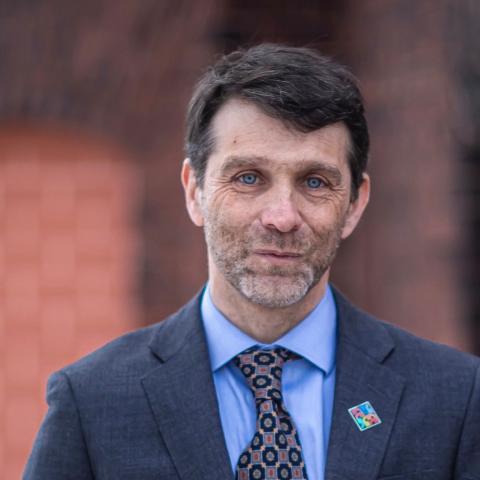
Michael Haley Goldman recently joined New Hampshire Humanities as its new Executive Director from the United States Holocaust Memorial Museum in Washington, DC, where he led a digital innovation team that explored the impact of emerging technologies on history education, informal learning, and digital humanities as Director of Future Projects. Future Projects conducts research, develops prototypes, and uses new technology such as virtual or augmented reality and 360° video to transform Holocaust memorialization and education. Read more about Michael.
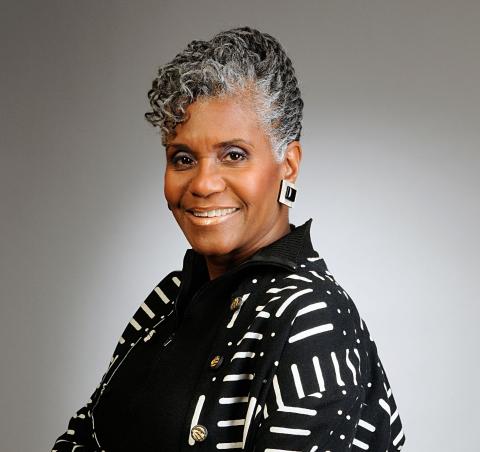
Judi Moore Latta, Ph.D. is Howard University professor emerita, formerly on the faculty of the Department of Media, Journalism and Film. She previously served as executive director of Communications and Marketing for Howard University; as director of WHUR-WORLD, 96.3, HD-2; and as the first woman in the role of interim general manager of the public broadcast station WHUT-TV. Earlier in her career, she worked as reporter/producer at CBS affiliate WUSA-TV and at National Public Radio (NPR) where she became the network’s first education reporter, executive producer of Special Programs and creator of “NPR’s Latin File” (first radio network Hispanic daily news program). At NPR she earned the George Foster Peabody Award as senior producer of the 26-part documentary series, “Wade in the Water: African American Sacred Music Traditions” and for dozens of productions, awards recognition from the Corporation for Public Broadcasting, American Women in Radio and Television, National Education Association, National Association of Black Journalists and National Federation of Community Broadcasters. She holds the following degrees: B.S. from Hampton Institute, M.A. from Boston University and Ph.D. from the University of Maryland College Park. In retirement, she continues to work in partnership with private and public organizations focused on underserved communities.
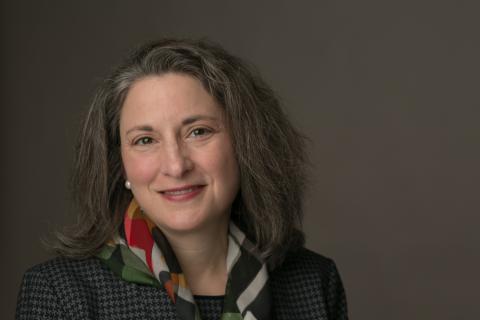
Phoebe Stein is president of the Federation of State Humanities Councils. Stein served as the executive director for Maryland Humanities from 2008 to 2020 and has been an advocate for the humanities at local, state, and federal levels for more than 20 years. During her tenure at Maryland Humanities, Stein expanded the council’s partnerships and resources and hosted a radio spot, “Humanities Connection,” while advancing several of the council’s flagship programs, including Maryland History Day, Museum on Main Street, and One Maryland One Book. She served on the Federation Board of Directors from 2013 to 2017 as both vice chair and as a member of the Legislative Committee. In 2016, she was recognized as one of “Maryland’s Top 100 Women” by The Daily Record. Before joining the Maryland council, Stein was the director of public affairs at Illinois Humanities. She received her Ph.D. and M.A. in English from Loyola University of Chicago and her B.A. in English from the University of Michigan. Stein serves on the board of the National Humanities Alliance and on the advisory council of Humanities Indicators, a project of the American Academy of Arts and Sciences.
11:00 –11:15
Break
11:15–12:00
Workstream Exercise
12:00–1:00
Lunch
Warner Room
AFTERNOON (Prescott Room)
Presentation
1:00–2:00
Mary Foltz on "South Side Initiative"
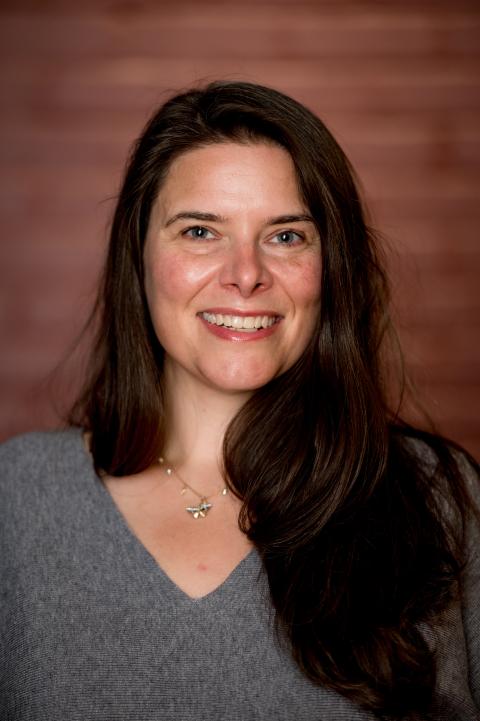
Mary C. Foltz is Associate Professor of English and Women, Gender, and Sexuality Studies at Lehigh University and the Scholar-in-Residence at the Lehigh Valley LGBT Community Archives in Allentown, PA. Foltz is a current ACLS Fellow with the Scholars and Society program with a focus on expanding and activating LGBTQIA+ community archives for public audiences. In addition, Foltz currently co-directs South Side Initiative at Lehigh University where she fosters public humanities projects that increase democratic and civic engagement. Her public humanities projects include exhibits on regional LGBTQIA+ history, multiple regional oral history projects focused on marginalized communities, multiple public-facing literary programs, the development of a community-based news site focused on local arts and culture, and facilitation of environmental working groups to address civic infrastructure and to improve habitats for declining species. Beyond a focus on LGBTQIA+ archives, she specializes in contemporary U.S. literature with a specific focus on environmental literary criticism, waste studies, and queer fiction and theory. Her monograph titled Contemporary American Literature and Excremental Culture: American Sh*t (2020) won the Northeast Modern Language Association Book Award for Literary Criticism of English Language Literature; in this work, she analyzes post-1960 scatological novels that utilize representations of human waste to address pressing issues, including pollution of waterways, environmental racism, and militarism. Her other current research project focuses on Gloria Naylor’s archives; she serves on the Naylor archives advisory board, co-directs the Gloria Naylor Archival Project, and is co-editing a collection of essays with Maxine Lavon Montgomery and Suzanne Edwards on Naylor’s archival materials.
2:00–4:00
Independent Visits: Portsmouth's Exhibits and Cultural Sites
Portsmouth LGBTQ+ Tour/Exhibit at Portsmouth Athenaeum
Afrofuturism 2022 Exhibit at Seacoast African American Cultural Center
Strawbery Banke
3:45–4:00
(optional) Student Presentation Run Through with Avary
Thursday, June 9
MORNING
7:30–9:00
Breakfast
Warner Room
9:00–9:15
Opening Announcements/Reflections
Prescott Room
9:15–10:00
Student Presentations, Part 1
10–10:20
Break
10:20–12:00
Student Presentations, Part 2
12:00–1:00
Lunch
Warner Room
AFTERNOON (Prescott Room)
Presentation
1:00–2:30
Summer Institute in Public Humanities: Alumni Stories
2019 Alum Catherine Besteman
and COMMUNITY Partner Leo Hylton (on Zoom)
on "Freedom and Captivity"
2021 AlUMS Jorge Cuéllar
and Cassie Montemayor Thomas
on "The Central America Project"
2021 Alum and 2022 Faculty Fellow Holly Cashman
on "The Seacoast NH LGBTQ+ Oral History Project"
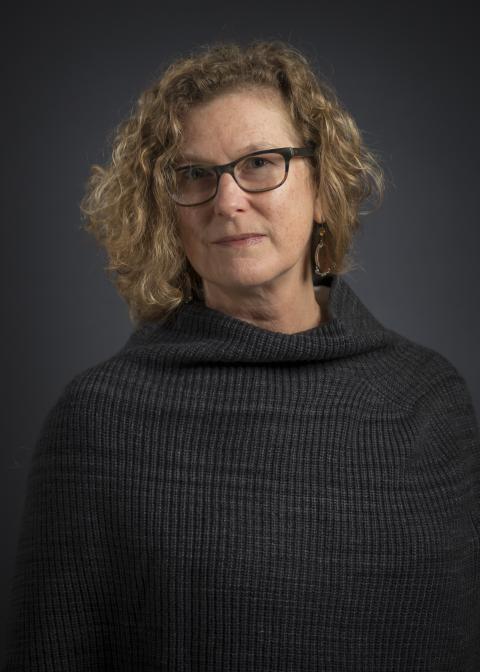
Catherine Besteman is an abolitionist educator at Colby College. Her research and practice engage the public humanities to explore abolitionist possibilities in Maine. In addition to the Freedom & Captivity initiative, she has researched and published on security, militarism, displacement, and community-based activism and transformation, focused on Somalia, South Africa, and the U.S. Her recent work has been supported by fellowships from the American Council of Learned Societies, and the Guggenheim and Rockefeller Foundations.
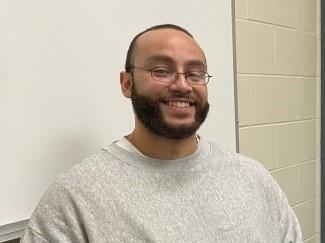
Leo Hylton is currently a second-year graduate student at George Mason University’s Jimmy and Rosalynn Carter School for Peace and Conflict Resolution. He graduated from the University of Maine at Augusta in 2016 with a Bachelor’s Degree in Liberal Studies. His education and work are now focused on Social Justice Advocacy and Activism, with a vision toward an abolitionist future. Toward that end, he is working as a Visiting Instructor at Colby College’s Anthropology Department, co-teaching AY346 – Carcerality and Abolition. He is also a columnist for the publication Mainer, where he writes a monthly column to raise public consciousness around the existence and power of humanity in carceral spaces. His research interests include: spirituality, trauma, trauma-healing, restorative justice, transformative justice, American criminal justice, transitional justice, carceral punishment, and prison abolition. Leo’s education, work, and research interests are informed by his experience as a currently incarcerated citizen in Maine State Prison.
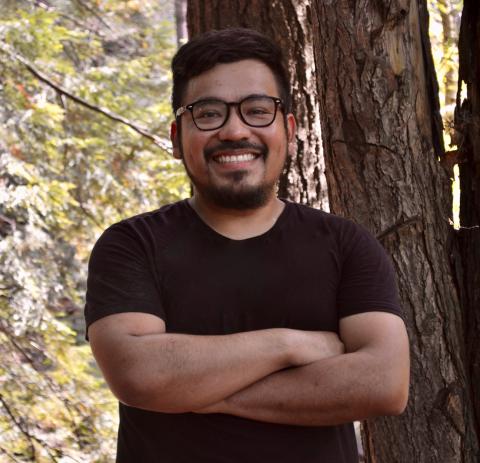
Jorge E. Cuéllar is Faculty Fellow and Assistant Professor in Latin American, Latino & Caribbean Studies at Dartmouth College. Cuéllar is an interdisciplinary scholar who focuses on the politics and daily life of modern Central America. His research emphasizes the life-affirming initiatives taking place in worlds characterized by social fragmentation, generalized insecurity, and environmental degradation by highlighting struggles that interrupt the logics that produce precarity, displacement, dispossession, and everyday death. At Dartmouth, he is affiliated with the Consortium of Studies in Race, Migration & Sexuality and leads the public humanities initiative, the Central America Project.
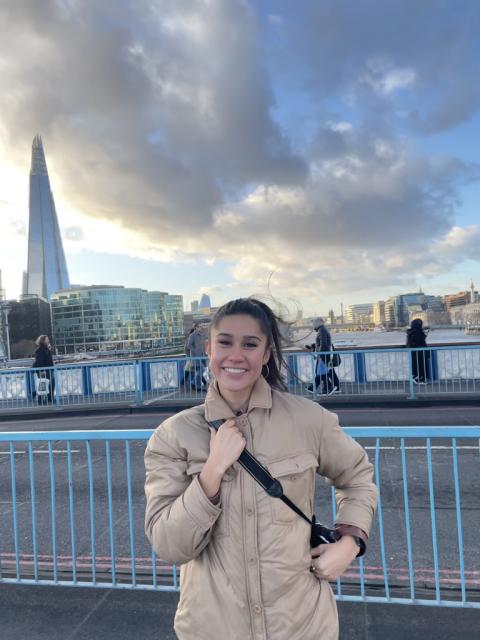
Cassie Montemayor Thomas is an undergraduate at Dartmouth studying Latinx, Latin American & Caribbean Studies, Government, and Spanish. Through her work on the Central America Project with Professor Jorge Cuéllar, she has learned about databasing, grant-writing, community outreach and programming, and of course, is constantly learning more about Central America. After participating in the UNH Public Humanities Institute in 2021, she and Professor Cuéllar have worked on creating digital and physical spaces in the Project grounded in public humanities. In her free time she enjoys running, reading short stories, stalking food blogs, and spending time with friends.
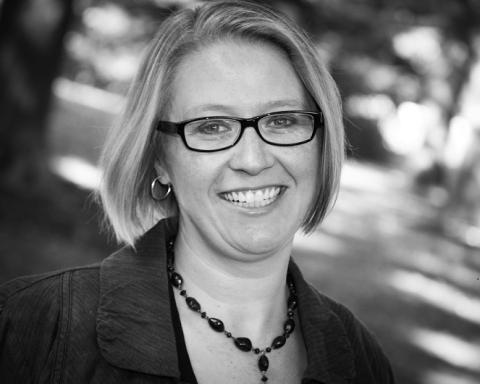
Holly R. Cashman (she/her, they/them) is Professor of Spanish at University of New Hampshire (USA), core faculty in Women's and Gender Studies, and co-coordinator of Queer Studies. Their research focuses on queering multilingualism, multilingualism in individuals, interaction, and communities, and language, gender, and sexuality. Cashman, who is the author of Queer, Latinx, and Bilingual: Narrative resources in the negotiation of identities (2018, Routledge), has also been published in journals, including Language in Society, Gender & Language, Language & Intercultural Communication, Multilingua, Spanish in Context, and Journal of Multilingual and Multicultural Development, and in edited volumes, such as The Oxford Handbook of Language & Sexuality and The Routledge Handbook of Spanish as a Heritage Language. At UNH, Cashman has received the faculty Kidder Award (2019) for fostering greater understanding of sexual orientation and gender expression, the President’s Good Steward Award (2018) for using professional expertise in service to the wider community and advancing public service on campus, and the Pink Triangle Award (2013-2014) for outstanding contributions to efforts for equity and visibility for the LGBTQ+ community. Cashman was a participant in the 2021 Summer Institute in Public Humanities and currently serves as the Institute’s Faculty Fellow. Their Seacoast NH LGBTQ Oral History Project, which aims to create a permanent digital archive of oral histories from the region’s LGBTQ+ community housed at the Portsmouth Public Library, is in its fifth year.
2:30–2:45
Break
2:45–4:00
Code of Ethics Workshop
Friday, June 10
MORNING
7:30–9:00
Breakfast
Warner Room
9:00–9:30
Opening Announcements and Reflections
Prescott Room
9:30–10:30
Lyra Monteiro on "The Museum on Site"
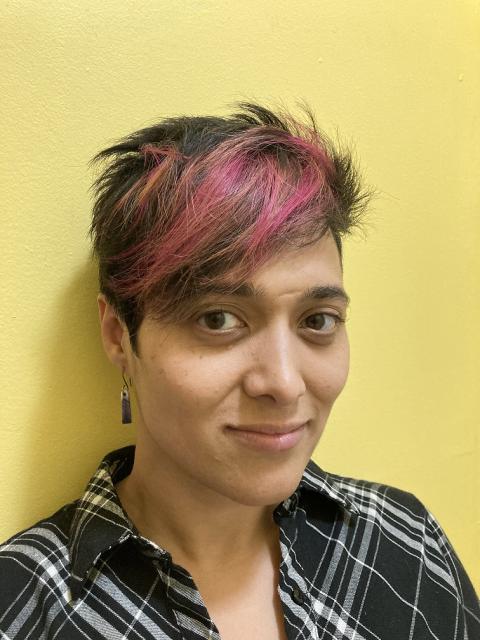
Dr. Lyra D. Monteiro (she/zie) is a scholar, artist, and organizer, and the child of a Kenyan-South Asian immigrant and a white descendant of several members of the genocidal Mayflower colony. She is Assistant Professor in Department of History and the Graduate Program in American Studies, and Affiliate Faculty in the Department of African American & African Studies at Rutgers University‒Newark. A central concern of her work is the uses of the past in public culture, with a particular emphasis on issues of race, representation, and trauma in the telling of the United States’ pasts. Her interdisciplinary training includes undergraduate studies in Classics and Anthropology at New York University; MAs in Latin and in Classical Art & Archaeology at the University of Michigan, Ann Arbor; and an MA in Public Humanities from the American Studies department at Brown University, where she also earned her PhD from the Joukowsky Institute for Archaeology and the Ancient World. She is currently writing a book titled Liberation Archaeology, which draws upon this material, while also offering a new methodology for people of color to engage with oppressive and traumatic pasts. Dr. Monteiro’s pathbreaking work on the hit Broadway musical Hamilton set the terms of critical conversation about the play. She has worked on curatorial, education, and development projects at more than a dozen museums and cultural institutions, including contributing to the curatorial development of the “Slavery and Freedom” exhibition at the Smithsonian Institution’s National Museum of African American History and Culture, and the COVID memorial project “Naming the Lost.” Dr. Monteiro directs The Museum On Site (TMOS), a public arts/public humanities project, with which she co-created the installation A Thousand Ships: A Ritual of Remembrance Marking the Bicentennial of the Abolition of the Transatlantic Slave Trade, which reached an audience of 30,000 residents and tourists in Providence, Rhode Island; and more recently mapped and commemorated the statue attacks of 2020 in “How to Kill a Statue,” a digital humanities collaboration with former students that grew out of her Spring 2021 graduate course on the “Public Histories of Slavery.”
10:30–12:00
Workstream Exercise
12:00–1:00
Lunch
Warner Room
AFTERNOON (Prescott Room)
Presentation
1:00–2:30
Araceli Hernández-Laroche and Fiona Vernal
on "Institutional Change"
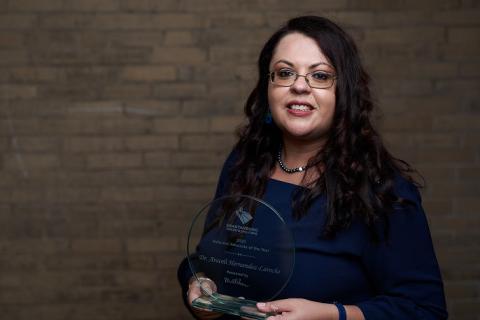
Araceli Hernández-Laroche, PhD from UC Berkeley, speaks four languages, and has lived and taught in other countries. She is an Associate Professor of Modern Languages at the University of South Carolina Upstate and the founding director of the South Carolina Centro Latino, the state’s first university-based center for the study of Hispanic and Latinx cultures. Its three pillars are Latinx Interdisciplinary Studies, the Multilingual Public Humanities, and Translation & Community Interpreting. She co-edited the volume with UK Routledge in 2021 (An International Discovery of World War One: Distant Fronts). Her books chapters on existentialist French and North African writers appeared in Routledge and Palgrave Macmillan. Her scholarly articles and reviews appeared in journals like the French Literature Series and The French Review. She is co-authoring a book in Spanish with Mexican scholars on migration and has forthcoming works with Lexington Books on Simone de Beauvoir and essays on the Public Humanities in the Joint Issue of the ADE and ADFL Bulletins and the Special Forum of the Association for the Study of Arts of the Present /Journal on Becoming Undisciplined. She was recognized as the 2020 Career Woman of the Year by the Business and Professional Women of South Carolina and as the 2020 Inclusion Advocate of the Year by the local chamber of commerce. Hernández-Laroche serves on several boards including the ACLU of SC. Araceli is the co-president of the ADFL Executive Committee and serves on the MLA Ad Hoc Committee Valuing the Public Humanities.
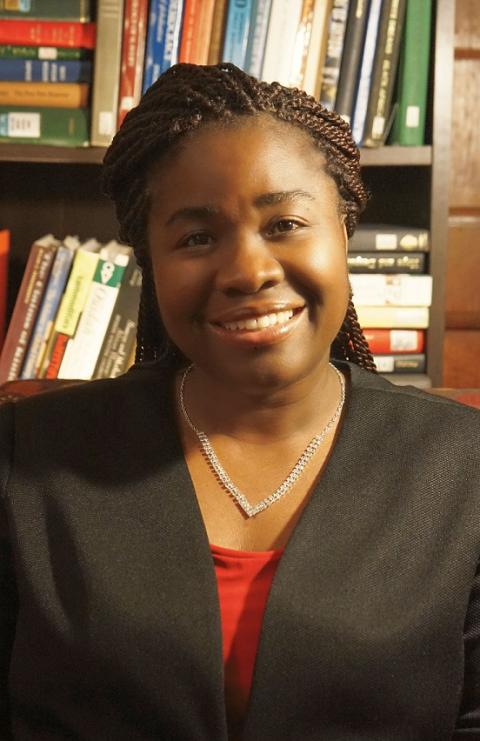
Fiona Vernal is the director of Engaged, Public, Oral, and Community Histories (EPOCH) and Associate Professor of History and Africana Studies at the University of Connecticut. Her current book and digital humanities project, Hartford Bound: Race, Mobility and Migration in Post- World War II Hartford examines the convergence of three great migrations of African Americans, Puerto Ricans, and West Indians in the Greater Hartford region. Her suite of public humanities projects on housing and migration were recently awarded the University of Connecticut’s Provost’s Awards for Excellence in Community Engaged Scholarship for 2021, a UCONN Humanities Institute fellowship for 2021-2022, and the Sustainable Global Cities Initiative (SCGI) Faculty Research Grant for 2021-2022.
2:30–3:00
Seed Funding Information
3:00–4:00
Final Workstream Exercise


